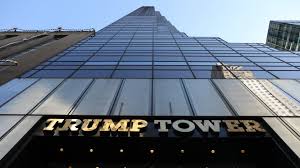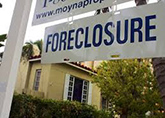SMALL BUSINESS FOCUS: LANDLORD LIABILITY FOR THIRD PARTY ACTIONS (The Second in a Series of Articles)
 In our first article, we discussed the landlord’s actions or inactions that can trigger constructive eviction, giving the tenant a defense in court against a landlord’s suit for unpaid rents. This article discusses a landlord’s liability when a third party causes problems, or creates the conditions leading to the tenant’s constructive eviction.
In our first article, we discussed the landlord’s actions or inactions that can trigger constructive eviction, giving the tenant a defense in court against a landlord’s suit for unpaid rents. This article discusses a landlord’s liability when a third party causes problems, or creates the conditions leading to the tenant’s constructive eviction.
Can the commercial tenant successfully plead constructive eviction or prevail against a claim for unpaid rents if another tenant interferes with your business operations? The short answer is - yes, if the third party’s actions or inactions can be attributed to the landlord’s failure to perform a duty owed under your lease. As we said in the first article in the commercial landlord-tenant relationship, the lease is the most important document and the courts will look to it to determine if the landlord breached any of his obligations. A landlord’s actions include actions by third parties if the landlord has a legal right to control the third party’s conduct. The prevailing case law in the District of Columbia is that there must be a connection between the landlord actions and the acts of interference by a third party with the tenant’s rights (for example, a warranty of quiet enjoyment). When that connection is tenuous, or there is no allegation of wrongful conduct on the landlord’s part, the landlord will not be held responsible. The following actual cases discussed below illustrate how this rule plays out in court in different factual situations.
The most common cases involve another tenant creating a nuisance that makes the premise un-inhabitable for the leased purpose. If the lease provides that the landlord has a duty to remedy the actions of a nuisance tenant, or the right to control the offending third party, then it is the action or lack of action by the landlord that will determine whether the nuisance caused constructive eviction. In one case, the tenant, a movie theater, complained that the persistent, regular loud music from a rock band hired by the second tenant (a restaurant) interfered with his business operations to the extent that he could not show his films. The DC Court of Appeals found that the landlord had failed to comply with a provision in the theatre’s lease requiring him to build out the leased premise to prevent noise and odors from other tenants. The no noise interference clause was essential to the theater’s business operations and the landlord failed to incorporate a noise restriction in the restaurant’s lease. The theater was awarded the cost of repairs that they had incurred to insulate the building when the landlord failed to do so despite repeated notices.
But in another case, the tenant, a non-profit organization engaged in the quiet task of translating religious books, stated that it had been constructively evicted by the noise and disturbance from another tenant, a childcare center occupying space across the hall. Landlord sued the non-profit for rents for the remainder of the lease term after it terminated its lease a year early. The DC Court of Appeals said there was no constructive eviction where the interference was a result of a third party’s actions and absent any wrongful act or omission on the landlord’s part, because the landlord did not have an intention to deprive tenant of its use and enjoyment of the leased premise. The Court found no restriction in the non-profit’s lease that would prevent the landlord from leasing to the child-care center.
A similar result was reached in a case where the tenants occupied space in a downtown DC office building. Landlord sued tenants for unpaid rents after the tenant moved. Tenant argued that another tenant in the building attracted “hippie people” to the building who robbed their offices and caused disturbances that interfered with their business. The Court said that tenant did not allege that the “hippie people” were acting at the direction, with the knowledge, or under the control of the landlord.
In yet another situation, the D.C. Court of Appeals confirmed that a tenant couldn’t claim constructive eviction when the tenant’s lease imposed no restrictions on a landlord to rent space to another tenant whose actions caused the tenant to leave. Here, the tenant had alleged that the landlord leased an adjacent space in a food court that sold the same bakery product as his and led ultimately to the closing of his business. The Court found that since there was no restrictive covenant that prohibited landlord from renting to another tenant selling the same product, the claim for constructive eviction failed because there was no wrongful conduct by the landlord
In the standard commercial lease, the landlord will include a waiver clause that makes them NOT liable for any damages arising from any act or neglect of any other tenant of the building in which the leased premise is located. A small businessperson, believing that he or she has no leverage, will simply accept these standard provisions. The lesson here - to the extent the small business person has bargaining power, he or she should seek to negotiate any restrictions needed to protect his or her business operations from nuisance, unfair competition or environmental hazards (such as noise or air pollution) from other tenants.
A fuller discussion of DC case law on third party liability is available in our Subscriber Section.
NEXT UP IN THIS SERIES: ORAL AGREEMENTS AND COMMERCIAL LEASES
DISCLAIMER: The discussion of legal issues in this column is for informational purposes only, and not specific legal advice. If you need assistance with your commercial lease or an eviction lawsuit, please contactus or another Attorney.






